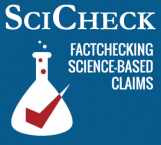Health and Human Services Secretary Robert F. Kennedy Jr. further added to the Trump administration’s problematic claims about Tylenol and autism on Oct. 9, alleging during a Cabinet meeting that circumcision-related studies provide evidence that the drug causes the condition when given to children. The studies, however, do no such thing.
Weeks earlier, as part of a promised announcement on the causes of autism on Sept. 22, President Donald Trump had repeatedly admonished pregnant women not to take Tylenol, also known as acetaminophen. He also recommended that children avoid the medicine, saying, “Don’t give Tylenol to the baby after the baby’s born.”

As we’ve written previously, some studies show an association between using acetaminophen during pregnancy and an increased likelihood of having a child with autism. However, this does not mean that use of the drug — which can be necessary for treating fever or pain during pregnancy — causes autism. Research has increasingly shown there are likely other explanations for the findings, and expert groups continue to recommend that pregnant people take acetaminophen when needed in consultation with their doctors.
There is even less of a basis for the idea that giving children Tylenol causes autism. But at the Cabinet meeting, Kennedy elaborated on the justification for this claim. “There’s two studies that show children who are circumcised early have double the rate of autism, and it’s highly likely because they’re given Tylenol,” he said.

He doubled down the next day with a post on X, saying an Aug. 1 preprint, which was posted without peer review, provided a “rigorous scientific framework” substantiating his claim. Kennedy also complained that some had represented him as arguing that circumcision rather than Tylenol caused autism, accusing mainstream media of choosing “to character assassinate me instead of educating Americans by digging into the science.”
Digging into the science does not support Kennedy’s claim about Tylenol. The preprint was a review paper that mentioned two studies involving circumcision and autism, neither of which provided any direct evidence linking acetaminophen to autism. The authors of one of the studies, done in Denmark, explicitly wrote in their paper that they did not measure acetaminophen use and were “unable to address the [acetaminophen] hypothesis directly.”
The Danish study, which was published in 2015, did find an association between circumcision and autism, speculating on pain as a cause. But as we will discuss, researchers have argued that the study based its conclusions on a very small number of circumcised boys with autism and that other factors, and not circumcision or pain, explain the study’s results.
We asked HHS which two studies Kennedy was referring to in his comments at the Cabinet meeting, and a spokesperson sent us a link to the X post.
“I don’t think either study provides any substantial evidence that [acetaminophen] use increases risk of autism,” Jeffrey S. Morris, director of the biostatistics division at the University of Pennsylvania’s Perelman School of Medicine, told us in an email, referring to the two papers on autism and circumcision cited in the preprint.
An Unvetted Manuscript Based on an Unfounded Premise
The Aug. 1 manuscript Kennedy cited, published on a preprint server, has not been peer reviewed or published in a journal, nor does it provide new data on Tylenol and autism. A preprint is simply an unpublished document that a researcher posts online. Preprints vary widely in quality and may or may not ever go on to be published in a scientific journal.
The senior author of the preprint, William Parker, is an immunologist and biochemist who has long argued that acetaminophen is behind rising autism rates, despite a lack of good evidence for this claim. Parker spoke repeatedly with Kennedy leading up to the autism announcement in September, according to reporting from the Atlantic.
Parker and his co-authors started by taking as fact a sweeping conclusion not supported by the scientific literature. “Overwhelming evidence shows that exposure of susceptible babies and children to acetaminophen … triggers many if not most cases of autism spectrum disorder,” the authors wrote. The review then set out to “understand why the conclusions have not been widely accepted.”
That is to say, the preprint did not look into whether autism and acetaminophen are causally linked, but rather why other scientists had not accepted the authors’ beliefs.
The researchers classified statements other scientists made in papers about autism and acetaminophen as “helpful,” “futile” or “harmful” depending on whether they endorsed a change in acetaminophen use, expressed possible concern without recommending change, or “reduced or assuaged” concerns about the drug, respectively.
“Sec. Kennedy holds up this non-peer-reviewed preprint as a ‘rigorous scientific framework that substantiates’ his interpretation,” Morris said in a post on X. “But it is not a mechanistic paper, but an explicitly biased narrative review that evaluates studies primarily by agreement with its hypothesis and the extent to which they endorse sweeping changes in acetaminophen use, rather than by established, transparent criteria for study quality.”
“This is not science,” David S. Mandell, a psychiatry professor at the University of Pennsylvania Perelman School of Medicine and director of the Penn Center for Mental Health, told us in an email when asked about the preprint.
A scientific paper, he said, would provide further information about its methods. And rather than setting out to prove a point, it would ask a question, “like ‘what is the evidence for and against the role of acetaminophen in causing autism’ or ‘is there systematic bias that may lead to inaccurate conclusions about this association?'”
Cited Studies Did Not Measure Tylenol Use
In his X post, Kennedy referenced a 2015 Danish study, saying the preprint had called it “the most compelling ‘standalone’ evidence that acetaminophen triggers autism in susceptible babies and children.” (The preprint in fact called out the study as one of three studies meeting that description; another was a study in mice, and the third was a 2008 study on acetaminophen use after vaccination, whose flaws we have written about previously.)
The Danish study does not support Kennedy’s claim. “This study didn’t examine use of acetaminophen at all,” Mandell said. “Their hypothesis is that the pain associated with ritual circumcision causes autism. RFK is making a leap unsupported by their analysis.”
Looking at Danish health records for boys born between 1994 and 2003, the researchers found that boys circumcised in the hospital or clinics using public funding were 46% more likely to be diagnosed with autism before age 10 than uncircumcised boys, and around twice as likely to be diagnosed with a form of autism called infantile autism by age 5. This latter statistic may be the source for Kennedy’s statement that studies show “children who are circumcised early have double the rate of autism.” Kids who were circumcised were not more likely to get an autism diagnosis between ages 5 and 9.
Out of nearly 343,000 boys born in Denmark during the study period, just 3,347 were circumcised in medical settings and around 5,000 were diagnosed with autism before age 10. There were just 57 circumcised boys diagnosed with autism before age 10.
In the discussion section of their paper, the authors of the Danish study said that it was “questionable” to assume all boys getting circumcised would be given Tylenol. Their study lacked information on whether babies were given acetaminophen and therefore could not be used to address whether Tylenol causes autism, they added.
Various expert groups over the years have recommended acetaminophen or mentioned it as an option for helping with circumcision pain. However, acetaminophen on its own is not effective for managing pain during circumcision, and it’s recommended that babies get local anesthesia, typically in the form of an injected anesthetic or numbing cream, as the main source of pain management.
In discussing acetaminophen, the Danish authors were responding to another study, published in 2013 by U.S. researchers, which attempted to link acetaminophen and autism by comparing male autism and circumcision rates in eight countries, as well as among 14 U.S. states. The preprint Kennedy relied on also cited the 2013 study. However, experts we spoke to again did not find the evidence compelling, and the paper itself only concluded that research into acetaminophen and autism was warranted.
The researchers in the 2013 study found that regions with higher autism rates also tended to have higher circumcision rates. They said higher rates of circumcision were a proxy for acetaminophen exposure. This was based on the assumption that some children getting circumcised got acetaminophen following a 1994 study, which showed giving acetaminophen possibly helped with pain during the recovery period but did not ease pain during the procedure or immediately after it.
Studies that compare data on populations — such as data on entire countries or states — rather than data at the individual level are called ecological studies. This sort of study “is considered the weakest form of scientific evidence,” Mandell said. He said that there are many reasons other than acetaminophen use that autism rates and circumcision rates could be correlated in a region, “the way that ice cream eating and shark attacks are correlated” even though one does not cause the other.
Brian Lee, a professor of epidemiology at Drexel University’s Dornsife School of Public Health, pointed out via email that the study authors were not always even able to find circumcision rates for the regions being studied. Instead, they relied on the percentage of Jewish and Muslim populations as a proxy. “If well-done [randomized controlled trials] are the gold standard, even well-done ecological studies are on the other end of the scale,” he said. “And this ecological paper can’t really be seriously discussed.”
Study Doesn’t Show Circumcision Causes Autism
Kennedy is likely correct to dismiss circumcision itself as an autism cause, and there are possible alternate explanations for the Danish study result that do not involve Tylenol.
Circumcision in Denmark is rare and is mainly chosen for sons by immigrants from Muslim countries, Lee said. Past research has shown an association between migration from a low-income country or being a child of an immigrant from one of these countries and a diagnosis of autism combined with intellectual disability, which Lee called the “most visible kind of autism.” These cases are more likely to be caught early in life, he said, possibly explaining the Danish study’s finding that circumcision is associated with early-life autism diagnoses but not with diagnoses in older children.
The researchers attempted to take cultural background into account in their analysis, but experts said that confounding factors remained.
Mandell explained that studying only circumcisions done in medical settings also likely influenced the results. Most Muslim and Jewish circumcisions occur in the community, he said. The babies in the study who got circumcised in the hospital likely had medical problems, such as being premature or having experienced obstetric complications, he said, and these factors are known to increase the likelihood of neurodevelopmental disorders such as autism.
In addition, “people who seek health care to get a circumcision in a hospital (as opposed to a private/religious setting) are also very likely to seek health care for their children,” Lee said. These parents might also be more likely to get their children evaluated for autism.
Editor’s note: FactCheck.org does not accept advertising. We rely on grants and individual donations from people like you. Please consider a donation. Credit card donations may be made through our “Donate” page. If you prefer to give by check, send to: FactCheck.org, Annenberg Public Policy Center, P.O. Box 58100, Philadelphia, PA 19102.